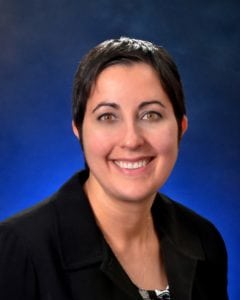How often during the day do we stop and give thanks for our hands?
When we look at our hands, do we see them critically, looking at age spots or less than perfect nails? Or do we recognize them for the miraculous gifts that they truly are?
Recently, Jewish Hospital hosted a reception to honor the 20th anniversary of the first successful hand transplant in America, which put Louisville on the world map as an innovator and leader in health care.
Present was the first hand transplant recipient, Matthew Scott, who shared how his life had been transformed by this miracle. For the first time, he said, he could hold his two children’s hands, experiencing things that most of us take for granted.
Leading surgeons and professors at the reception described how this medical breakthrough transformed transplantation and reconstructive surgery. The 14½-hour procedure, which required an 18-member team, was performed by surgeons from Kleinert Kutz Hand Care Center and Christine M. Kleinert Institute for Hand and Microsurgery. The transplant was part of the Louisville Vascularized Composite Allograft program in partnership with the University of Louisville.
Jewish Hospital, part of KentuckyOne Health, was proud to host this event. Our hands are truly miracles. They demonstrate what is enduring.
During times of transition, it is helpful to refocus on what is enduring. This is a powerful way that religious practice can ground us in a changing world.
We are reminded of this wisdom every week as we turn our focus to the Torah portion. No matter what happens in our lives, we return to these ancient words to root ourselves in narratives which have sustained us for thousands of years.
The Pirkei Avot (Ethics of the Fathers) teaches: “Turn it and turn it again, for all is in it; see through it, grow old and worn in it; do not budge from it, for there is nothing that works better than it.”
When we return to the Torah portion of the week, with new insights and perspectives developed from a year of living, then we root our lives in Torah and ground ourselves in the wisdom of generations who have come before us.
But with every new interpretation, we breathe new life into ancient words, transforming the text of Torah into a tree of life.
Through the practice of Torah study, we contextualize our daily experiences in that which is sacred and enduring. A poem inspired by the kedushah (holiness) prayer states: “Days pass and the years vanish, and we walk sightless among miracles.… Help us to see, wherever we gaze, that the bush burns unconsumed… that we will reach out for holiness and exclaim in wonder: How filled with awe is this place, and we did not know it!”
Too often, we focus upon those things that are lacking for us and forget the miracles and blessings that have been entrusted to us. Working in healthcare, we are given unique opportunities to be reminded of our blessings.
I was honored to give the invocation at the hand transplant anniversary. Among other things, I said:
“Today we give thanks for hands…
Today we give thanks for the hands that have been given and the hands received…
For the hands that have soothed and comforted
For hands that have operated and performed healing miracles
For hands that have been restored and hands that have been transplanted
For the hands that have gone on to love and create and work and heal.
It is my hope that every week, as we turn to the Torah, we will turn it and turn it, recognizing that all the blessings for which we pray have already been given to us. We have been tasked to actualize them through our choices and actions.
May this historic anniversary give us all a deeper awareness of the miraculous blessings which are present all around us, if we would only stop and notice them.
(Rabbi Nadia Siritsky is vice president of mission at KentuckyOne Health.)



